Ivory Coast
On the Treichville market in Abidjan, Côte d'Ivoire, hairdressers were busy on the eve of the celebration marking the end of Ramadhan.
The technique is mastered, and the gesture quick and precise. It will be repeated for this client to be ready for Eid-el-Fitr.
"Two Presidents", "Bunker", "Marcoussis", these are hairstyles' names. Each tells a piece of the country's history.
The ""Marcoussis" [...] date back to when the country grappled with an armed rebellion, there was the Linas Marcoussis affair," braider Astou Thiam said. " And since the hairstyle came out during that time we named it after it. "
Old doesn't mean out of fashion. The hairstyle named after the 2002 crisis is still popular on social media.
Aïcha Coulibaly found it on Facebook: "I often check what's on Facebook," this youn customer says. "like different hairstyles that I look for one that I like and give it a go."
Eid-el-Fitr is a bank holiday in Côte d'Ivoire.
In the nation of about 27 million inhabitants, Islam is the dominant religion. Well aware of this, hairdressers are never outdone in creativity to come up with new styles.
"There are several hairstyles we see on Tik Tok, Djénéba Traoré, explains. We see celebrities braiding their hair in a certain way, so we download the videos, we put our own spin to the hairstyle and then we put it on the market. Customers love it "
Muslims usually spend their Eid- al-fitr praying, giving and wearing new clothes, sharing gifts and visiting loved ones. In Cote d'Ivoire a tradition knwon as Sambe sambe sees children usually dressed up to the nines wishing a happy holiday.




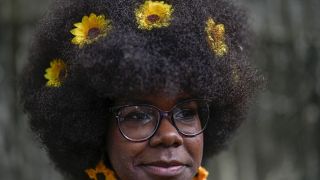
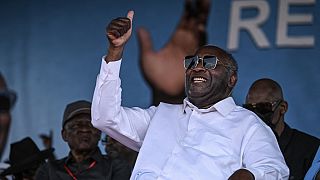
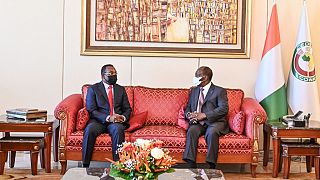
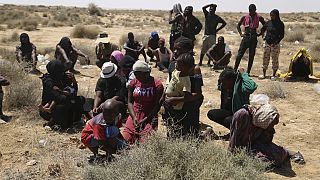
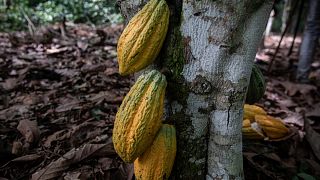




01:00
Tidjane Thiam removed from electoral list ahead of presidential election
Go to video
Tidjane Thiam nominated to run in Ivory Coast presidential election
Go to video
Paris hosts the 4th edition of African Cinema Days featuring Côte d'Ivoire
Go to video
Eid al-Fitr: Kenyan Muslims urged to stand with Gaza
Go to video
Muslims attend prayers marking end of Ramadan in Nigeria
01:32
Sudanese celebrate Eid al-Fitr with hope amid ongoing conflict